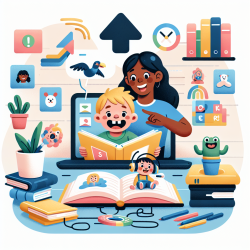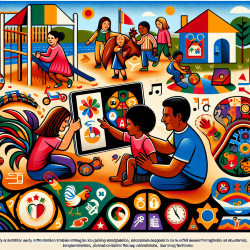Introduction
In times of societal crises, children face unique challenges that can significantly impact their mental health and well-being. The recent research article titled "Measuring child coping in times of societal crises: Pilot development, reliability, as well as mental health and meaning mindset convergent validity of the children’s crisis coping scale (3Cs)" provides valuable insights into how practitioners can better support children during these turbulent times. This blog aims to explore the findings of this research and offer guidance to practitioners seeking to enhance their skills in promoting child resilience and coping mechanisms.
The Importance of Child Coping Measures
Children's voices are often overlooked in the development of programs and services that affect them. The 3Cs (Children’s Crisis Coping) scale addresses this gap by providing a brief, pandemic-specific self-report measure for assessing child coping. This tool is designed to evaluate how children manage stress, worries, loneliness, and school changes during societal disruptions. By incorporating the 3Cs into practice, educators and therapists can gain a clearer understanding of a child's coping abilities and tailor interventions accordingly.
Key Findings from the Research
- Internal Consistency and Validity: The 3Cs demonstrated good internal consistency reliability and convergent validity with mental health and meaning mindset. This means that the scale is a reliable tool for assessing how well children cope with societal crises.
- Meaning Mindset: The research highlights the significance of a "meaning mindset," a concept from Second Wave Positive Psychology. This mindset involves finding meaning in challenges, which can lead to positive coping and resilience.
- Collaborative Development: The 3Cs was developed using a Knowledge Translation-Integrated approach, involving key stakeholders such as children, parents, and mental health practitioners. This collaborative method ensures the measure is both credible and user-friendly.
Practical Applications for Practitioners
Practitioners can leverage the 3Cs scale to enhance their practice in several ways:
- Individualized Interventions: By understanding a child's specific coping challenges, practitioners can design personalized interventions that address stress, worries, and loneliness.
- Promoting Meaning Mindset: Encourage children to adopt a meaning mindset by helping them find purpose and growth opportunities in their experiences. This can be achieved through activities that foster agency, positive self-concept, openness, and hope.
- Family Involvement: Engage families in the coping process by providing them with strategies to support their children's mental health and well-being during crises.
Encouraging Further Research
While the 3Cs provides a valuable tool for assessing child coping, there is always room for further research and development. Practitioners are encouraged to explore additional ways to integrate child self-report measures into their practice and contribute to the ongoing refinement of these tools. By staying informed about the latest research and collaborating with other professionals, practitioners can continue to improve the support they offer to children in need.
To read the original research paper, please follow this link: Measuring child coping in times of societal crises: Pilot development, reliability, as well as mental health and meaning mindset convergent validity of the children’s crisis coping scale (3Cs).










